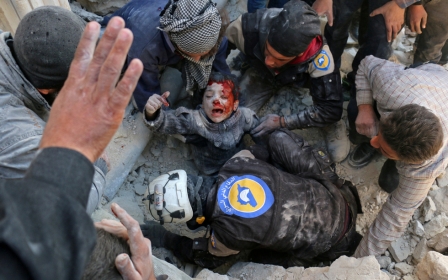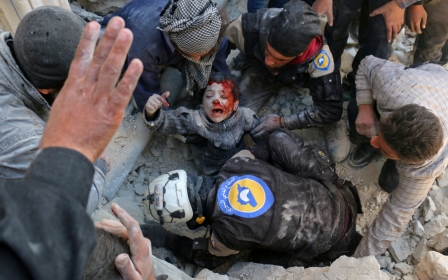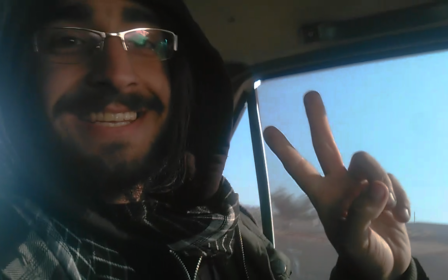Red Cross defends role in Aleppo evacuations after damning UN report

The International Committee of the Red Cross (ICRC) defended its role in the evacuation of civilians from eastern Aleppo after a hard-hitting UN report condemned the process as amounting to "the war crime of forced displacement."
The evacuations "helped avoid an even greater humanitarian catastrophe in Aleppo, at a time when people playing no part in the violence were trapped ....and had literally nowhere to run," ICRC spokesperson Iolanda Jaquemet told Middle East Eye on Wednesday.
The group, which described itself as an "independent, neutral organisation", said it had played a pivotal role in the process with its staff helping transport civilians on green buses out of the enclave.
According to Jaquemet, the committee is however "currently looking into the conclusions [of the UN report] regarding the evacuations of civilians from Aleppo in December 2016."
Damning report
The latest verdict by the expert UN panel left the ICRC in a difficult position, portraying the group as complicit in perpetrating war crimes.
The report, by the UN's independent international commission of inquiry into Syria, laid out a roll call of war crimes it said it "strongly" suspected were committed by government forces as they sought to re-occupy the east of the city between July and December 2016.
Published on Wednesday, the UN report described the Aleppo evacuations overseen by the ICRC, as a "war crime" after thousands were left displaced in a "perilous" situation.
It concluded that the evacuations were done solely for "strategic purposes" and "not for the security of civilians."
The report also said that the evacuations had left civilians with "no option to remain in their homes" after an agreement was made between a coalition of rebels and the Syrian government.
A key recommendation emphasised that warring parties "refrain from future evacuation agreements, resulting in the forcible displacement of civilian populations for military gains."
Forced displacement of innocent civilians directly contravenes the Geneva Convention, which was established in the aftermath of the second World War.
Numerous accounts
The UN report comes after numerous accounts emerged claiming that the Syrian Arab Red Crescent (SARC), an ICRC affiliate, was present when civilians were taken hostage by pro-Assad militias in December 2016.
MEE contributor Zouhir al-Shimale confirmed at the time that four men were killed while other evacuees were taken hostage despite members of the SARC being present when a convoy of at least 800 civilians was taken hostage by Shia militias near Ramoussa on 16 December.
Other evacuees also told MEE that members from the Syrian Red Cross and SARC were forced to leave the scenes while evacuees were robbed of their possessions during the same incident.
According to ICRC, more than 30,000 people were evacuated from rebel-held east Aleppo over a period of a few days in December 2016.
The Aleppo evacuation was agreed upon after Russian warplanes and forces loyal to the Syrian government had continuously bombarded the rebel-held area in a bid to take control of the enclave from opposition rebel groups.
Civilians who were displaced from their homes were transported to the west Aleppo countryside or refugee camps in the rebel-held city of Idlib, where thousands still remain.
This article is available in French on Middle East Eye French edition.
Stay informed with MEE's newsletters
Sign up to get the latest alerts, insights and analysis, starting with Turkey Unpacked
Middle East Eye delivers independent and unrivalled coverage and analysis of the Middle East, North Africa and beyond. To learn more about republishing this content and the associated fees, please fill out this form. More about MEE can be found here.




